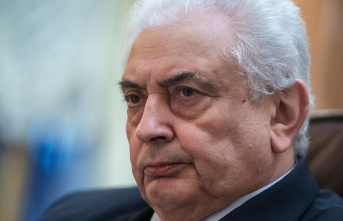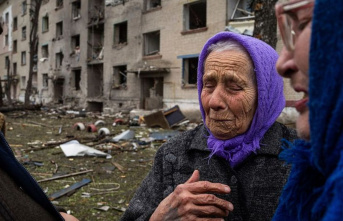With heavy chains around the neck, or posters with Slogans such as "Stop Killer Cops" and "I Can't Breathe" to draw protesters in front of the police headquarters in your city. They are protesting against police violence and call for reforms. But the images are not from Detroit or Houston. They come from Johannesburg, the largest city in South Africa. Also in Kenya and Nigeria protesters go these days on the streets or make their anger on the police in the social media air.
violence against the poorthe murder of The African-American George Floyd by a white police officer on 25. May has triggered worldwide protests. Thousands have participated in the past few weeks, in African countries,"Black Lives Matter"demonstrations to make out of solidarity with George Floyd, and other Victims of police violence in the United States, but also at the same time on the situation in their own countries. Because in many African countries, police violence is a real Problem.
The reasons for this are not, however, as in the United States in societal racism is justified, experts say. Especially poorer people or population groups are not considered equivalent to those affected in Africa Annette Weber, East Africa expert at the Foundation for science and politics in Berlin explains. "In Kenya, for example, the Kenyan Somali or coastal dwellers, since there is a hierarchy in the ethnic groups," Weber said in the Interview. "In COVID-19 we have seen that police has been directed violence primarily against the poor, cannot afford the restrictive measures of the lock downs to comply with."
violence is a Problem of the classalso Gareth Newham, head of the Anti-violence program of the Institute for security studies (ISS Africa) confirmed in the South African capital of Pretoria. "Police violence here is not motivated really racist. Most of the cops are black, most of the victims of the violence young black men. It is rather a Problem of class belonging in South Africa. The police will be more likely to use violence, when people are poor, no matter what skin color you have. And you hardly can against someone to proceed driving a fancy car and a lawyer against the police departments behavior," says Newham in the DW-Interview.
police violence in Africa has structural causes, the back part has a long history, says Annette Weber. "The relationship between the state and the population in many countries is characterised positively." The show particularly in the Sudan. There, government after 30 years by the authoritarian Regime of Omar Al-Bashir, although now a civilian transitional government with the task of reforms. "But if a population suffering from 30 years under a brutal Regime, can it be the relationship with the state," says Weber.
In many African countries there is a lack, therefore, of the necessary trust between state and citizens and the police and the population. And the roots of this dilemma lie ultimately in the colonial history. "The implementation of colonial rule was held by the police," says Weber.
a Similar argument applies to South Africa, says Gareth Newham. "Torture and violence are rooted in the colonial System of Apartheid festival. This mentality is transitioned into democracy." Newham takes the policy in the responsibility: "We have a political leadership that does not acknowledge that in the exercise of police tasks, there is a crisis situation. Only if that changes, it can be better."
protests don't solve the ProblemAccording to Franziska Ulm-Düsterhöft, Africa Director at Amnesty International, there could be some points at which policy intervention: Too often, African policemen were ill-equipped and poorly paid, corruption is the result. Also questionable guidelines for police work, could easily change: "In Nigeria, there are even quotas on how many of the arrests to the success of the police," said Ulm-Düsterhöft. She holds the commitment of activists and protesters to be important: "In Kenya, protests to the Emergence of locally based police-led forces in the municipalities and this has contributed to the de-escalation of conflicts." But the structural problems are in this way not solvable.
In South Africa there is still much to do, says Gareth Newham. Rarely police officers for Offences in the service would be held to account. More than 30,000 complaints of police violence have given it to an independent Commission that in the past five years in the country. "You have been placed to 95 percent of the files, without against the accused officers, the procedure has been," says Newham. "The majority of police officers do not take seriously that you have to act according to the law."
author: Martina Schwikowski
*The post "police violence in Africa: policy experts take the duty," is published by Deutsche Welle. Contact with the executives here.
Deutsche Welle Date Of Update: 03 July 2020, 16:26










